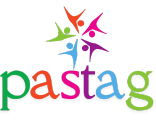In today’s fast-paced world, being able to manage time, tasks, and resources efficiently is crucial to success. Organizational skills are not just about keeping things neat or creating to-do lists—they play a pivotal role in boosting productivity, reducing stress, and improving your overall work performance. Whether you’re managing a team, working from home, or handling multiple responsibilities at once, honing your organizational skills can significantly enhance your ability to get things done and achieve your goals.
In this article, we will explore how organizational skills directly impact your productivity and provide tips on how to develop and apply these skills to optimize your workflow.
1. Time Management: The Foundation of Productivity
Effective time management is at the heart of organizational skills. It’s about being able to allocate the right amount of time to each task, ensuring that you make the best use of your day and accomplish more in less time. Without good time management, it’s easy to fall into the trap of procrastination or spend too much time on low-priority activities.
A. Setting Clear Goals and Priorities
Organizational skills help you set clear goals and prioritize your tasks. By identifying what needs to be done and when, you can focus on the most important activities first, avoiding the common pitfall of working on tasks that don’t move you closer to your objectives.
- Example: Using a task management system, you can categorize tasks based on urgency or importance, helping you focus on high-priority items rather than getting caught up in trivial details.
B. Breaking Down Large Tasks into Manageable Chunks
When a project feels overwhelming, it’s easy to procrastinate or lose motivation. Organizational skills help you break down complex tasks into smaller, more manageable steps. This makes it easier to stay on track and accomplish more in a given time frame.
- Example: If you’re working on a report, break it down into sections, such as research, drafting, editing, and formatting. Tackling each part individually makes the overall task less daunting.
C. Time Blocking
Time blocking is an organizational technique that helps you allocate specific periods during your day to work on particular tasks or projects. By scheduling uninterrupted time for each task, you can reduce distractions and stay focused.
- Example: Setting aside an hour in the morning for focused work on a major project and scheduling a block of time in the afternoon for meetings ensures that your day is structured and purposeful.
2. Enhanced Focus and Reduced Distractions
Being organized helps you focus on one task at a time, which is crucial for maintaining productivity. Without organizational skills, it’s easy to get distracted by emails, phone calls, or other people’s requests, all of which take you away from the work that needs to be done.
A. Organizing Your Work Environment
An organized workspace minimizes distractions and allows you to concentrate better. Clutter and disorganization can cause stress and make it harder to find what you need, leading to wasted time and decreased productivity. A clean, organized space allows you to stay focused on the task at hand.
- Example: Keeping only the necessary items on your desk and storing documents and tools in designated places ensures that your workspace is conducive to concentration and eliminates distractions.
B. Reducing Mental Clutter
When your work and personal life are organized, your mind has more space to focus on your tasks rather than juggling numerous thoughts about what you need to do. Organizational skills help you clear mental clutter, allowing for better concentration and decision-making.
- Example: Creating a daily plan or writing things down on a to-do list can help clear your mind and allow you to focus on one task at a time, knowing that other tasks are scheduled or taken care of.
3. Improved Task Completion and Consistency
Organizational skills not only improve your ability to manage time but also help you stay consistent and complete tasks more effectively. Consistency is key to long-term productivity, and having organizational systems in place can make it easier to follow through on tasks and maintain momentum.
A. Building Routines
Creating routines is one of the most effective ways to stay organized and productive. By developing daily or weekly habits, you ensure that certain tasks are completed without fail. Consistent habits reduce decision fatigue and allow you to focus on more important or complex tasks.
- Example: Setting a specific time each morning to review your calendar and prioritize tasks for the day ensures that you stay on top of deadlines and avoid forgetting important tasks.
B. Tracking Progress
Organizational skills also include tracking your progress toward your goals. Whether you’re using a project management tool or a simple checklist, having a visual representation of what’s been completed and what’s left to do helps you stay motivated and ensures that you’re not overlooking anything important.
- Example: Keeping a progress tracker for long-term projects helps you see how far you’ve come and gives you a sense of accomplishment as you check off completed tasks.
4. Reduced Stress and Overwhelm
When you’re disorganized, you can quickly feel overwhelmed by the sheer volume of tasks and responsibilities on your plate. Organizational skills can help reduce stress by creating systems that make tasks more manageable and ensure you’re always aware of your responsibilities.
A. Creating Systems and Processes
Having systems in place for common tasks or projects ensures that you don’t waste time figuring out how to handle the same problems repeatedly. Whether it’s setting up an email folder system or creating templates for reports, these organizational processes save time and reduce the mental load.
- Example: Organizing your email inbox into folders for urgent, important, and non-urgent messages allows you to respond more efficiently and prevents your inbox from becoming overwhelming.
B. Staying Ahead of Deadlines
Good organization helps you keep track of deadlines and ensures that you’re not scrambling at the last minute. By staying ahead of deadlines and managing your workload, you can reduce the pressure and stress associated with looming due dates.
- Example: Using a project management tool like Trello or Asana allows you to set clear deadlines and milestones, helping you pace yourself and avoid last-minute stress.
5. Increased Motivation and Accountability
An organized approach to your work leads to increased motivation, as you can clearly see your progress and understand the steps required to achieve your goals. Organizational skills also foster accountability, which can lead to better outcomes in both individual and team settings.
A. Setting and Tracking Goals
When you organize your tasks based on short- and long-term goals, you gain a better understanding of your priorities. Tracking progress toward these goals creates a sense of accomplishment and drives motivation to keep going.
- Example: Setting daily, weekly, and monthly goals helps you stay focused and ensures that you’re consistently working toward larger objectives. Checking off goals as you achieve them gives you a sense of fulfillment and encourages further progress.
B. Holding Yourself Accountable
When you have an organized system for tracking your tasks and responsibilities, it becomes easier to hold yourself accountable. Whether you’re managing a project or completing a personal task, staying organized ensures that you’re following through on your commitments.
- Example: Using a task management app allows you to track deadlines, assignments, and progress, ensuring that you stay on top of your work and take responsibility for completing tasks.
6. Better Decision-Making and Problem-Solving
Organizational skills also contribute to improved decision-making. When your environment is organized, you can quickly access relevant information, analyze options, and make decisions more efficiently. Being able to easily find resources allows you to solve problems with confidence and speed.
A. Organized Information
An organized system for storing information—whether digital or physical—ensures that you have quick access to the materials you need when making decisions. Instead of wasting time searching for files or resources, you can quickly gather the necessary information and move forward.
- Example: Maintaining an organized filing system, both online and offline, allows you to find the documents you need to make informed decisions without unnecessary delays.
B. Streamlined Problem-Solving
Being organized helps streamline the problem-solving process. By maintaining order and clarity in your tasks and priorities, you can more easily assess challenges and come up with solutions that are both effective and efficient.
- Example: If you’re facing a project roadblock, a well-organized workspace and workflow will help you identify the root cause of the problem and find solutions faster.
7. Conclusion: Organizational Skills as a Productivity Booster
In conclusion, organizational skills are essential for boosting productivity, reducing stress, and achieving success. By improving time management, reducing distractions, staying consistent, and creating efficient systems, organizational skills allow you to accomplish more in less time. Whether you’re managing your personal tasks or leading a team, organizing your work can help you stay focused, motivated, and on track.
Investing time and effort into honing your organizational skills is a game changer. The payoff is not only increased productivity but also enhanced well-being and work satisfaction. By implementing simple organizational strategies and tools, you can create an environment that fosters success, helping you reach your goals with greater ease.

